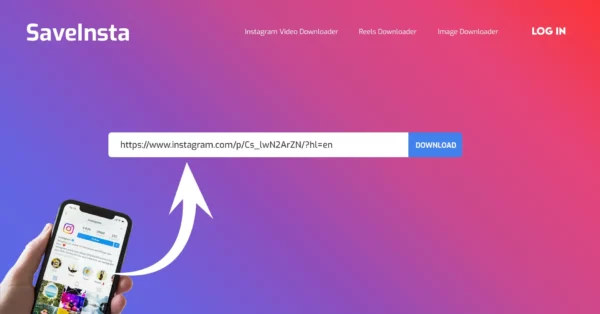Rajkotupdates.news:deal got in trouble due to fake spam account of Twitter
Twitter has been in a lot of hot water recently due to the deal between it and Foxconn. The issue stems from a fake spam account that was used to promote the deal.
The fake spam account created by Twitter to promote the deal between it and Foxconn has caused a lot of controversies. The company came under fire for creating a fake account that posed as an independent news outlet, which promoted the deal without disclosing its affiliation with Twitter.
Many people criticized Twitter for this move and accused the company of misleading users. They argued that companies should be transparent about their promotional activities, especially when they involve creating fake accounts or misleading content.
This incident has raised important questions about the role of social media platforms in promoting deals and products. It also highlights the need for greater transparency and honesty from companies when they engage in promotional activities on social media. Overall, it is important for companies to be truthful and transparent about their marketing efforts, especially as more people turn to social media platforms as sources of information.
Elon Musk has put a Twitter deal on hold over fake account details
Elon Musk, the CEO of SpaceX and Tesla, has put a Twitter deal on hold over fake account details. The deal was for a promotional campaign with Twitter to help promote his tunnel-digging project, The Boring Company. However, this promotion got in trouble due to the presence of a fake spam account that violated Twitter’s rules.
Musk had been planning to give away signed hats for those who retweeted his company’s tweets about the tunnel-digging project. However, Twitter’s own policy prohibits users from creating multiple accounts with overlapping uses or following behavior. As such, when it was discovered that at least one of the accounts promoting Musk’s tweets was actually a spam account created by a user called “EagleEye” – who has since been banned from the platform – it became clear that Musk’s promotion would violate those rules.
As of now, there is no word yet on whether the promotion will continue once these issues are resolved or if Musk plans on finding another way to promote his company’s projects through social media platforms like Twitter. Regardless of what happens next, this incident serves as an important reminder that businesses need to be careful when partnering with social media companies and should always pay attention to their policies and guidelines before starting any promotions or campaigns on these platforms.
Elon Musk warns Twitter deal stuck without fake account proof
Elon Musk, the CEO of Tesla and SpaceX, has recently warned that a deal involving Twitter is at risk due to the presence of fake spam accounts on the platform. The deal in question pertains to an agreement between Twitter and Neuralink, a company founded by Musk that focuses on developing advanced brain-machine interfaces.
According to Musk, these fake accounts are hindering progress in finalizing the deal with Twitter. He argues that such accounts make it difficult for companies to determine who they should be working with on the platform. Furthermore, he notes that this issue can also potentially harm user experiences with social media platforms.
While many companies have attempted to combat fake accounts through various means over the years, it remains a persistent problem for social media platforms worldwide. It remains unclear what specific actions will be taken by both Neuralink and Twitter to address this issue and ensure that their partnership can move forward as planned.
Musk threatens to drop Twitter deal if fake-account data not provided
The Twitter deal between Elon Musk and the social media platform is in jeopardy due to a fake spam account. Musk has demanded that Twitter provide data on the fake account, threatening to drop the deal if they fail to comply. The CEO of Tesla and SpaceX announced on his own Twitter account that he had asked for the data and had not yet received it, raising concerns about transparency and accountability.
Musk’s concerns are valid, as the presence of fake accounts can significantly impact a company’s online reputation. In this case, the spam account in question was allegedly impersonating one of Musk’s companies, which could have led to confusion among customers or investors. By demanding access to information about these types of accounts, Musk is taking proactive steps toward protecting his brand image.
While it remains unclear what exactly will happen with this particular Twitter deal, it is clear that Musk takes social media seriously as a tool for communication and marketing. As such, he is likely to continue pushing for greater transparency from platforms like Twitter in order to ensure their legitimacy and effectiveness as advertising channels.
How a deal got in trouble due to a fake spam account on Twitter
The use of social media has become an integral part of most marketing strategies. However, it can also be a double-edged sword, especially when fake accounts come into play. One instance where this became a problem was when a deal between two companies got in trouble due to a fake spam account on Twitter.
The fake account had been created to mimic the real account of one of the companies involved in the deal. The imposter then sent out tweets that made it appear as if the company was backing out of the agreement. This caused confusion and doubt among stakeholders, ultimately leading to delays and potential loss of future business opportunities.
The incident highlights how easy it is for malicious actors to use social media platforms such as Twitter to manipulate information and cause damage with little effort or investment. It calls for businesses to be vigilant and proactive in monitoring their online presence and taking necessary measures against such fraudulent activities.
The Deal: A popular deal on Twitter was pulled due to a fake spam account
The world of social media is a great place to find amazing deals and discounts. However, it is also a hub for scammers who create fake accounts to spread spam and deceive people. This was the case with a popular deal that recently got pulled from Twitter due to a fake spam account.
The deal in question offered customers an incredible discount on an expensive product. The news of this deal quickly spread through Twitter and many people took advantage of it. However, some users noticed that the account promoting the deal was not authentic and was only created for spreading spam.
Although Twitter has strict policies against fake accounts and spamming, some users still manage to get away with it. Unfortunately, this particular instance led to the removal of the popular discount offer which had helped many customers save money on their purchases. This serves as a reminder that we should always be cautious when dealing with offers online and do our research before making any purchases or sharing personal information.
Consequences: The deal’s disappearance led to a loss for the buyer and the seller
The disappearance of a deal, especially when it is already in progress, can have dire consequences for both the buyer and the seller. In this specific case where a fake spam account on Twitter was involved, trust and credibility are called into question, leaving both parties vulnerable to losses.
For the buyer, it means losing an opportunity to acquire or invest in something that could have been valuable or profitable. The time and resources that were already spent on negotiating and preparing for the deal will be wasted if it suddenly disappears due to external factors. Besides financial loss, there may also be reputational damage if other potential deals are hesitant to engage with them.
On the other hand, sellers who have invested their efforts in sealing a deal may suffer from lost income or opportunities as well. They would need to spend more time and resources rebuilding their reputation and searching for new buyers instead of focusing on growing their business. Additionally, they could face legal repercussions if any contractual obligations had not been met before the deal fell apart.
In summary, when a deal disappears unexpectedly due to unforeseen circumstances like fake accounts on social media platforms such as Twitter, buyers and sellers alike face lost opportunities financially as well as potential reputational damages. It is crucial for both parties to remain vigilant against these kinds of situations by conducting thorough research beforehand while safeguarding themselves from scams.
Implications: The lesson to be learned from this story is that using fake accounts to promote your product or service can backfire
Using fake accounts to promote your product or service may seem like an easy and effective way to gain attention, but it can have serious consequences. The recent incident involving the popular deal website, where they were caught using fake spam accounts on Twitter, highlights the negative impact of such tactics. Instead of gaining positive attention, their actions resulted in a backlash from consumers who felt deceived and betrayed.
The implications of using fake accounts go beyond just damaging your brand’s reputation. It can also lead to legal troubles and penalties for violating ethical guidelines set by various authorities. In addition, it could result in social media platforms banning your account altogether, which would make it difficult for you to reach potential customers through that channel.
In conclusion, businesses must understand that honesty and transparency are crucial when promoting their products or services online. The use of fake accounts not only backfires but is also ethically wrong. Rather than resorting to such methods, brands should focus on building authentic relationships with their audience by providing value and engaging them through genuine means.
Conclusion
In conclusion, the issue of fake spam accounts on social media platforms is a serious concern that must be addressed by all stakeholders. The recent case of a deal getting into trouble due to such an account highlights the potential risks involved in using unreliable sources for marketing purposes. It is essential for businesses to adopt strict measures to avoid falling victim to such scams and safeguard their reputation.
Furthermore, companies should pri
oritize transparency and authenticity in their marketing strategies, by ensuring that all information provided is accurate and verifiable. This will not only help build trust with customers but also prevent any legal implications arising from false or misleading claims.
Overall, dealing with fake spam accounts requires a proactive approach from both businesses and social media platforms alike. By working together to eliminate these fraudulent activities, we can create a safer and more trustworthy online environment for everyone.
Also Read: wellhealthorganic.com:5 amazing health benefits of guava








